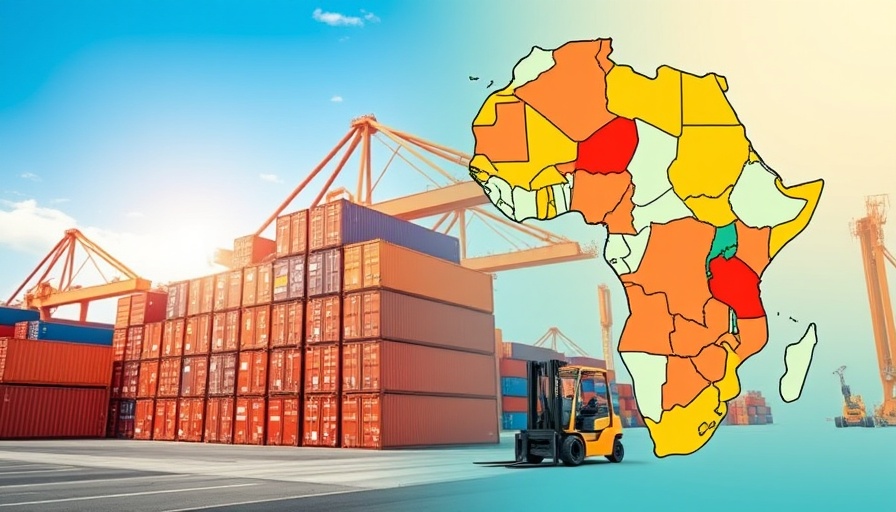
The Rising Significance of Africa in Global Supply Chains
Africa, often seen through the lens of its challenges, is carving out an essential role in the global supply chain landscape. The continent, with its burgeoning consumer market and improving infrastructure, is on the verge of becoming a pivotal hub for international trade. The African Development Bank forecasts that Africa's consumer spending will skyrocket, reaching an astounding $2.5 trillion by 2030. This surge is drawing the attention of global giants like Walmart and Nestlé, eager to capitalize on Africa's expanding middle class.
Investing in Infrastructure: A Crucial Step
The potential of Africa is closely tied to its infrastructure. With an estimated annual investment requirement of $130 billion, improvements in roads, railways, and logistics facilities are critical. Initiatives such as the African Continental Free Trade Area (AfCFTA) place a strong emphasis on boosting infrastructure to elevate Africa’s competitiveness in the global arena.
Diversification: A New Economic Horizon
In a shift from its traditional dependency on commodities, Africa is diversifying its exports. Countries like Ethiopia, Kenya, and Rwanda are investing in industries such as textiles and technology. Ethiopian Airlines stands out with its efficient air cargo services, transporting produce and textiles worldwide. At the same time, Kenya's horticulture sector has blossomed, exporting fresh flowers and vegetables, thus highlighting the continent's evolving economic landscape.
Regional Integration: A Catalyst for Growth
The AfCFTA, which unites over 1.3 billion people under a single market, is reshaping Africa's trade dynamics. With a combined GDP exceeding $3.4 trillion, this agreement is expected to pave the way for enhanced regional cooperation, reduce trade barriers, and drive economic growth.
Future Prospects: Addressing Challenges and Navigating Opportunities
Despite the promising outlook, Africa still faces significant challenges, including political instability and inadequate infrastructure. Meeting these hurdles will require collaborative efforts from governments, businesses, and international partners. By focusing on infrastructure investment, diversification, and regional integration, Africa can unlock its full economic potential and enhance its role in the global supply chain.
 Add Row
Add Row  Add
Add 




Write A Comment